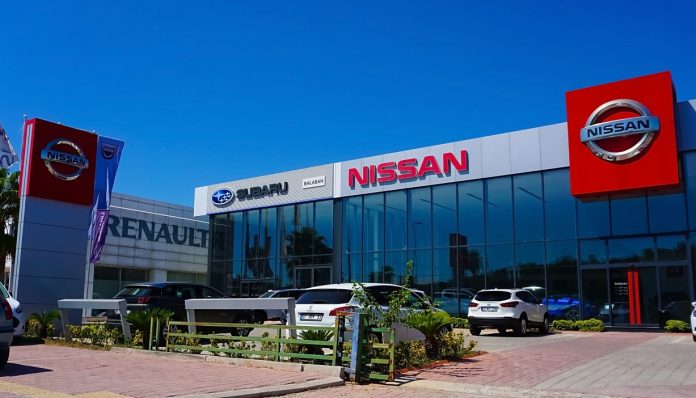Nissan dealerships across the U.S. are grappling with a steep decline in profitability, marking the lowest levels seen in nearly 15 years. In the first half of 2024, about 38% of Nissan’s 1,071 dealerships reported losses as the brand’s U.S. market share continued to erode. According to internal financial data, the network’s return on sales—a critical profitability measure—slumped from 3.2% a year earlier to just 1%.
The average net profit for a Nissan dealership plummeted 70%, to $262,582, exacerbating concerns among dealers and resulting in the closure of eight franchised stores so far this year. The rapid decline has alarmed many within the network, with one dealer noting that Nissan stores are, in many cases, selling just half the volume of competitors like Honda, Toyota, Subaru, and Hyundai. This drop in new car sales has also impacted other profit centers like finance, service, and parts, further straining dealership operations.
Additionally, Nissan’s U.S. market share fell to 5.8% in the first half of 2024, down 1.9 percentage points from five years ago. Meanwhile, competitors like Hyundai and Toyota have seen their shares climb. Rising interest rates, increased floorplan expenses, and shrinking per-vehicle margins have intensified the profitability squeeze at Nissan dealerships. President of Haig Partners, Alan Haig, highlighted that Nissan and Stellantis dealers have been among the hardest hit in an industry-wide profitability decline of about 30% in the year’s first half.
In response, Nissan is taking steps to increase dealer profitability by launching various initiatives. This includes introducing new models, such as the redesigned Kicks, Armada, and Murano, to attract more customers. However, many see the brand’s slower adoption of hybrid technology compared to its rivals as a significant disadvantage in the current market, where hybrids are gaining popularity. Nissan plans to introduce its e-Power series hybrid system to the U.S. within the next three years, but until then, competitors are capitalizing on the hybrid trend.
Overall, Nissan’s dealership network is seen as overextended, with more franchises than its current sales volume can support. Some dealers have suggested that the brand should reduce its number of stores by up to 40% to improve profitability for the remaining dealerships. Despite the challenges, opportunities may arise for newer, less-capitalized dealers to acquire struggling Nissan stores, potentially turning them around in the years ahead.








